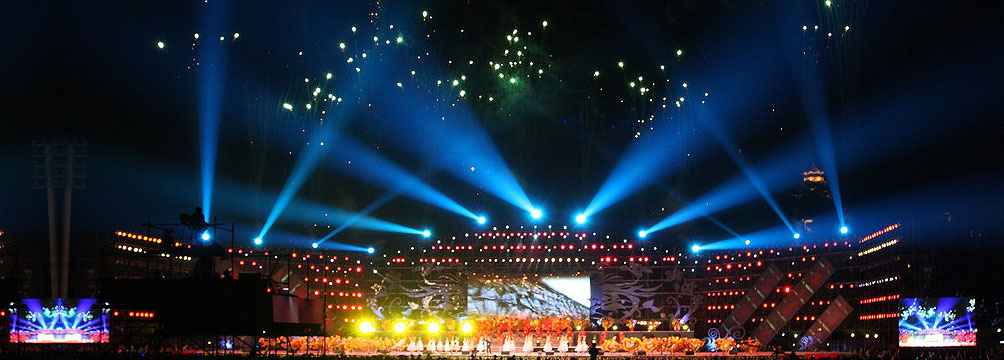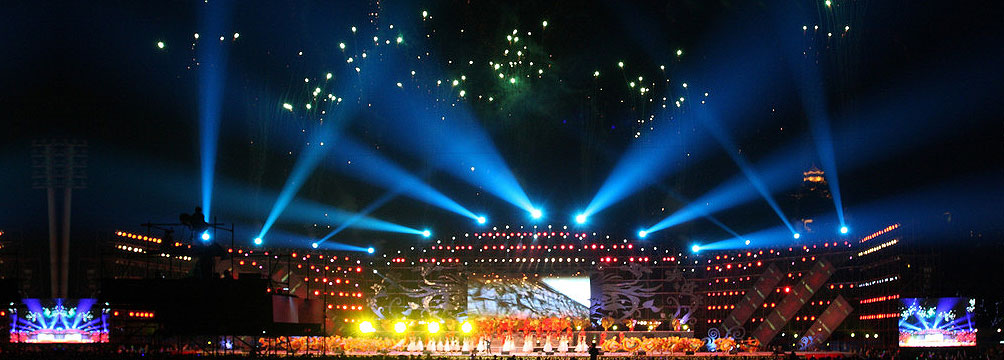According to the "Guidelines for Comprehensive Administrative Law Enforcement Matters in the Cultural Market of Xx Province", our cultural, sports, tourism, press and publishing, radio and television market operating units have the following types, specific names and definitions, and the basis for regulatory laws and regulations are as follows: (Whether new business forms and other business units fall within the scope of supervision of our bureau, it is defined according to the definitions of laws and regulations and相关内容)
1. Internet Cafe:根据“有关互联网服务业务的管理法规”的第2条,这些法规中提到的互联网服务业务位置是指通过计算机和其他设备向公众提供互联网服务的Internet咖啡馆,计算机休闲室和其他商业场所。学校,图书馆和其他单元附加的地点为特定对象提供互联网服务以获取信息和信息必须遵守相关法律和法规,这些法规不得适用。第4条:县级或高于县级的文化行政部门负责建立和批准Internet访问服务业务前提业务部门的建立和批准,并负责根据法律确定的Internet Access Service Service Service Formises业务部门的业务活动的监督和管理。
2.舞厅:根据“娱乐场所管理法规”的第2条:这些规定中提到的娱乐场所是指诸如唱歌,舞蹈,舞蹈,娱乐等的地方,以获取盈利目的,并向公众开放,消费者自行娱乐。第3条:县级或高于县级的人民政府的文化当局负责监督和管理娱乐场所的日常业务活动。
3。游戏室和娱乐室:根据“访问场地管理条例”的第2条:本法规中提到的娱乐场所是指为了盈利而唱歌,舞蹈,娱乐和其他地方,并向公众开放,消费者自行娱乐。第3条:县级或高于县级的人民政府的文化当局负责监督和管理娱乐场所的日常业务活动。
4。商业表演:艺术表演小组,商业表演活动,商业绩效业务活动,绩效经纪机构,绩效场地业务部门,绩效组织者和演员。
根据“有关商业表演管理法规”的第2条:这些法规中提到的商业表演是指为公众组织的现场文学和艺术表演。第5条:县级或高于县级的地方人民政府的文化部负责监督和管理其行政区域内的商业表演。
5。互联网文化活动:在线音乐,游戏,艺术品,表演等。
根据有关互联网文化的临时规定的第3条,这些法规中提到的互联网文化活动是指提供互联网文化产品及其服务的活动,主要包括:(1)诸如互联网文化产品的生产,复制,进口,分发和广播之类的活动; (2)在互联网上在线传播文化产品,或将其发送到计算机,固定电话,移动电话,电视,游戏机和其他用户终端,以及互联网咖啡馆和其他Internet服务业务场所,供用户浏览,欣赏,使用或下载; (3)互联网文化产品的展览,比赛和其他活动。第6条:县级或高于县级的人民政府文化行政部门负责监督和管理其行政区域内的互联网文化活动。人民政府的文化行政部门以县一级或更高或以上或文化市场的全面执法机构对违反相关国家法律和法规从事互联网文化活动的行为施加惩罚。
6.艺术业务活动:艺术品购买,销售,租赁,经纪,进出口业务,评估,商业展览的评估,以艺术品作为主题作为主题的投资和运营,使用信息网络从事艺术业务活动等。
根据“有关艺术管理的规定”的第2条:这些措施中提到的艺术品是指绘画,书法和密封雕刻,雕塑和雕塑,艺术摄影作品,装置作品,工艺和手工艺品等,以及上述作品的有限副本。这些措施中提到的艺术品不包括文化文物。这些措施监管的艺术业务活动包括:(1)获取,销售,租赁; (2)经纪; (3)进出口业务; (4)评估,评估,商业展览和其他服务; (5)以艺术为主题的投资和商业活动和服务。这些措施适用于使用信息网络从事艺术业务活动。第3条:县级或高于县级的人民政府文化行政部门负责其行政区域内艺术业务活动的日常监督和管理。根据法律授权的县级或更高的人民政府文化行政部门或县级综合文化市场执法机构对违反相关国家法规从事艺术商业活动的行为施加了惩罚。
7.艺术分级机构:根据“社会艺术水平评分管理措施”的第7条,艺术分级机构,艺术分级机构是指根据这些措施的规定,获得了获得公开艺术分级活动资格的艺术学校,专业艺术团体,专业协会和艺术机构。第5条,县级或高于县级的地方人民政府的文化行政部门负责执行有关其行政区域内艺术分级的国家政策和法规,并监督和检查艺术分级活动。
8。文化文物保护工作:阻碍文化文物管理行为;造成文化文物的损失或损害;非法建筑;非法使用文化文物;文化文物的非法运作;文化文物收集单位的非法运作;文化文物商店等
根据“中华人民共和国的文化文物保护法”的第2条,以下文化遗物受国家保护:(1)古代文化遗址,古老的坟墓,古老的建筑,石窟,石雕,石雕和壁画,具有历史,艺术和科学价值; (2)与重大历史事件,革命运动或著名人物以及重要的巨大,教育或历史价值有关的重要现代历史遗址,物理对象和代表性建筑物; (3)历史上各种时代的珍贵艺术和艺术品; (4)历史,手稿和书籍材料中具有历史,艺术和科学价值等各种时代的重要纪录片材料; (5)反映历史上各个时代和种族的社会制度,社会生产和社会生活的代表性对象。文化文物认可的标准和方法应由州议会的文化文物行政部提出,并提交国务院批准。具有科学价值和古代人类化石的脊椎动物古生物化石受到文化遗物的保护。第8条:各级当地人民政府负责保护其行政区域内的文化遗物。负责文化文物保护工作的部门在县一级或高于县级的部门应监督和管理其行政区域内文化遗物的保护。
9。公共文化和体育设施管理部门:
根据“关于公共文化和体育设施的法规”的第2条,这些法规中提到的公共文化和体育设施是指各层次或社会势力组织的建筑物,场地和设备,这些建筑物,地点和设备由社会势力组织,这些层次向公众开放,公众为公共福利图书馆,博物馆,纪念馆,艺术画廊,典型(pallium senters),青少年(Stands),Stadads,Stadads,STADADADS,STADADADS,STADADADS,STADADADS,STADADADS,STADADADS,STADADADS,STADADADS中宫殿等进行文化和体育活动。这些法规中提到的公共文化和体育设施管理部门是指负责维护公共文化和体育设施的社会公共文化和体育机构,并为公众提供文化和体育活动的服务。第7条:县级或高于县级的地方人民政府的文化行政部门和体育行政部门应根据人民政府在同一层面规定的责任,负责其行政区域内公共文化和体育设施的监督和管理。
县政府以统一的方式负责旅游安全工作,并应加强组织领导力并澄清相关部门或机构的整体协调。旅游当局根据其责任监督旅行社,导游,旅游领袖和其他旅游从业人员。
该法律应适用于中华人民共和国的旅游法和中华人民共和国领土内的第2条,该法应在中华人民共和国和中华人民共和国的领土上组织,并在中华人民共和国领土上组织,并为旅游活动提供相关服务的业务活动。
第7条县级或高于县级的地方政府应加强旅游业的组织和领导,澄清相关部门或机构,并协调其行政区域旅游业的发展,监督和管理。
第76条县级或高于县级的人政府对旅游安全工作负责。县级或高于县级的人政府的相关部门应根据法律和法规履行其旅游安全监督责任。
第83条根据本法律和相关法律和法规的规定,在县级或高于县级的旅游当局和相关部门应监督和管理各自责任的旅游市场。县级别的人民政府应组织旅游当局,相关的主管部门,市场监督和管理,运输和其他执法部门,以监督和检查相关的旅游业活动。
第85条在县级或高于县级的旅游当局有权监督和检查以下事项:(1)旅行社的业务以及导游和导游的服务是否已获得业务和实践许可; (2)旅行社的业务行为; (3)导游,导游以及其他旅游从业者的服务行为; (4)法律和法规规定的其他事项。旅游局应按照上一段的规定实施监督和检查,并可以审查并复制可疑合同,账单,书籍和其他材料。
1。旅行社,旅行社分支机构,旅行社服务渠道
根据《旅行社法规》第2条,该法规适用于中华人民共和国领土内旅行社的建立和商业活动。这些法规中提到的旅行社是指从事的公司合法人员,例如吸引,组织和接待游客,向游客提供相关的旅游服务,并从事国内旅游业,入站旅游业或出站旅游业。第10条如果旅行社建立了一个分支机构,则应在分支机构地点的工业和商业行政部门申请建立登记,并在分支机构地点的旅游行政部门提交自建立登记之日起的3个工作日内向旅游行政部门提交。建立旅行社分支机构不受地理限制。分支机构的业务范围不得超过建立分支机构的旅行社的业务范围。第11条专业旅行社机构
吸引游客并提供旅游咨询的服务渠道(以下称为旅行社服务渠道)应根据当地旅游行政部门的法律和档案,以与工业和商业行政部门一起完成建立注册程序。旅行社服务渠道应接受统一的旅行社管理,并且不得吸引或咨询以外的活动。
第3条:县级或高于县级的地方政府部门应根据其职责负责其行政区域内旅行社的监督和管理。第46条:第2条和第3条:如果以下任何情况发生在第46条中:如果以下任何情况违反了本规定的规定,则旅游行政部门或工业和商业行政部门应订购更正,请没收非法收入。如果非法收入超过100,000元,则将非法收入的罚款不少于1次,但不超过非法收入的5倍;如果非法收入少于100,000元或没有非法收入,则罚款应被罚款不少于100,000元,但不超过500,000元人民币:(2)该分支机构在建立分支机构的旅行社业务范围之外经营旅游业; (3)旅行社服务渠道除了吸引和咨询以外的旅行社业务运营。
2。导游和旅游业组织(旅游局协会导游协会)
根据“导游管理条例”的第2条:这些规定中提到的导游是指根据这些法规的规定获得导游证书的人,接受任命旅行社,并向游客提供指南,解释和相关的旅游服务。第4条:要在中华人民共和国的领土内从事导游活动,您必须获得导游证书。如果您获得导游资格证书,则可以通过与旅行社签订劳工合同或向相关旅游业组织签署劳工合同,从该省人民政府,自治区或市政府的旅游行政部门申请导游证书。根据“导游管理措施”的第3条,该州实施了导游系统的许可系统。从事导游练习活动的人员必须获得导游资格证书和导游证书。国家旅游管理局已建立了导游级别评估系统,导游服务之星评估系统和国家旅游监督服务信息系统。各级旅游当局都使用标准化和信息的手段来实施导游的动态监督和服务。第36条第2段:如果旅游业组织或旅行社适用于获得导游证明以隐藏相关情况或提供虚假材料,则该县级的旅游局应下令进行更正,并可能罚款不到5,000元。
3。在线旅游经营者(在线旅行社或组织或本地法规规定,旅游局具有行业监督责任)在中华人民共和国领土内提供在线旅游商业服务,该条款是“关于在线旅游业服务管理的临时规定”的第2条,并适用这些规定。这些规定中提到的在线旅行业务服务是指通过信息网络(例如Internet)为游客提供有限的旅行服务或单个旅行服务(例如运输,住宿,餐饮,旅游和娱乐)等个人旅行服务的业务活动。第3条在这些规定中提到的在线旅行经营者是指从事在线旅行商业服务的自然人,合法人员和非法律人士组织,包括在线旅行平台运营商,平台内的运营商以及通过自行建立的网站和其他在线服务提供旅游服务的运营商。这些法规中提到的平台运营商是指合法人员或非法律人士组织,该组织在线旅行商业服务交易中的双方或多方提供在线业务场所,交易匹配,信息发布和其他服务。这些法规中提到的平台中的运营商是指通过平台运营商提供旅游服务的在线旅行经营者。第5条县级或高于县级的地方文化和旅游当局应根据其责任划分的责任,负责其管辖范围内的在线旅游商业服务的监督和管理。
4.旅游经营者(旅游:旅游机构,风景秀丽的景点和旅游局规定的当地法规规定)
“旅游安全管理措施”的第2条旅游经营者的安全生产安全,对旅游当局的安全监督和管理以及对旅游紧急情况的反应应遵守相关法律,法规和这些措施的规定。这些措施中提到的旅游经营者是指风景秀丽的景点,酒店以及其他规定旅游当局具有行业监督责任的部门。 “福建省旅游法规”的第5条在县级或以上是当地人民政府的旅游当局,负责其行政区域内旅游业的指导,协调,管理和监督。
1。出版物:书店,音频和视频商店,电子出版物;批发,零售,租赁,展览和销售
该法规应适用于根据《出版物管理法规》第2条,从事中华人民共和国领土内的出版活动。这些法规中提到的出版活动包括出版,印刷或复制,进口和分发出版物。这些法规中提到的出版物是指报纸,期刊,书籍,视听产品,电子出版物等。第6条:负责在县级或高于县级的本地人民政府的部门(以下称为出版行政部门)负责监督和管理其行政部门的出版活动。这些法规中提到的“出版物市场管理法规”出版物的第2条涉及书籍,报纸,期刊,视听产品和电子出版物。第4条:在省级或之下,人民政府的出版行政部门负责监督和管理其行政区域内出版分销活动。
2。音频和视频商店:出版,生产,复制,进口,批发,零售,租金和其他活动
根据“音频和视频产品管理法规”的第2条,该法规适用于有声音,视频录像带,录像带,记录,激光转盘和带有记录内容的声音录像带,录像带,录像带,录像带,录像带,录音带,录音带,记录,录音带,录音带,记录,录音带,记录,录音带,录音带,记录,录音带,记录,录音带,记录,录音带,录音带,录音带,录音带,录音带,录音带,唱片,零售,租金和其他活动。第4条:负责在县一级或高于县级或高于县级政府的行政部门(以下称为出版行政部门)负责监督和管理其行政区域中有声音的出版物,生产,复制,进口,进口,批发,批发,零售,零售,零售,零售,零售和租金。
3。印刷工厂,打字和复制商店
“印刷行业管理条例”的第2条:该法规适用于出版物,包装和装饰印刷品以及其他印刷品的印刷业务活动。这些法规中提到的出版物包括报纸,期刊,书籍,地图,新年图片,图片,日历,专辑和视听产品以及电子出版物的绑定封面。这些法规中提到的包装和装饰印刷材料包括商标,广告材料和印刷材料,例如用作产品包装和装饰的纸,金属,塑料等。这些法规中提到的其他印刷材料包括文件,材料,图表,门票,文件,名片等。这些法规中提到的印刷业务活动包括商业排版,制造,印刷,打印,装订,复制,复制,影印,印刷和其他活动。第4条:负责在县一级或以上(以下称为出版行政部门)出版和管理当地人民政府的行政部门负责其行政区域内印刷行业的监督和管理。
4。复制其他媒体的单元,例如光盘,磁带磁盘
根据“副本管理措施”的第2条,这些措施适用于光盘,磁带磁盘和其他存储媒体表格的复制和业务活动,由新闻和出版物的一般管理(以下简称其他媒体称为其他媒体)。这些措施中提到的光盘包括仅读取的光盘和可记录的光盘。其中,仅阅读的光盘是指存储内容的CD;可记录的光盘是指空白光盘。这些措施中提到的复制和业务活动包括带有内容的磁带磁盘的商业CD复制,生产和复制。这些措施中提到的副本单元是指从事光盘,磁盘和其他媒体复制业务的单元。第4条:县一级或高于县级的本地媒体和出版行政部门负责对其行政领域内的光盘,磁带磁盘和其他媒体复制业务活动的监督和管理。
5。在线出版服务:通过信息网络向公众提供在线出版物(数字工程)
该规定应适用于“在线出版服务管理法规”的第2条,在中华人民共和国领土内从事在线出版服务。这些规定中提到的在线出版服务是指通过信息网络向公众提供在线出版物。这些规定中提到的在线出版物是指通过信息网络提供给公众的数字作品,并具有编辑,生产,处理等的特征,并且范围主要包括:(1)原始数字作品,例如文本,图片,图片,游戏,游戏,动画,动画,音频和视频读物,以及文学,艺术,科学等领域; (2)数字工作与已出版的书籍,报纸,期刊,音频和视频产品,电子出版物等一致; (3)数字作品,例如由上述作品的选择,安排和收集组成的在线文档数据库; (4)由国家出版物,广播,电影和电视国家管理局认可的其他类型的数字作品。在线出版服务的特定业务分类将分别制定。第4条在当地人民政府的各个层面上的出版行政部门以及各级电信部门应根据其各自的职责在其行政区域内实施相应的监督和管理工作,并在其行政区域内实施相应的监督和管理工作,并在合作方面做得很好。
6。侵犯版权
根据《中华人民共和国版权法》第3条所指的作品,指的是原始的知识成就,可以在文学,艺术和科学领域以某种形式表达,包括:(1)书面作品; (2)口头作品; (3)音乐,戏剧,民间艺术,舞蹈,杂技艺术作品; (4)美术和建筑作品; (5)摄影作品; (6)视听作品; (7)工程设计图,产品设计图,地图,示意图和其他图形作品; (8)计算机软件; (9)符合作品特征的其他知识成就。第10条版权包括以下个人权利和财产权:(1)出版权,即决定是否公开工作的权利; (2)签署权,即指示作者身份并在作品上签名的权利; (3)修改的权利,即修改或授权他人修改工作的权利; (4)保护工作完整性,即保护工作免受扭曲或篡改的权利; (5)复制权,也就是说,通过打印,复制,摩擦,录制,视频,撕裂,翻拍,数字化等来制作一份或多本作品的副本; (vi)发行权的权利,即通过出售或礼物向公众提供作品的原始或副本的权利; (vi)租金权,即许可他人有权暂时使用视听作品或计算机软件的原始或副本,除非计算机软件不是租金的主要主题; (viii)展览的权利,即公开展示艺术作品和摄影作品的原始或副本的权利; (9)执行作品的权利,即公开执行作品和通过各种方式公开播放作品的权利; (10)投影权,即通过投影仪和幻灯片投影仪等技术设备公开复制美术,摄影,视听作品等的权利; (11)以有线或无线方式进行广播的权利,并通过扬声器或其他传递符号,声音和图像的工具向公众传播作品,但不包括本段第12项中规定的权利; (12)传播信息网络的权利,即以有线或无线的方式向公众提供向公众提供的权利,以便公众可以选择及时和地点获得工作的权利; (13)电影权的权利,即通过拍摄视听作品在运营商上修复作品的权利; (14)适应权,即更改作品并创建原始新作品的权利; (15)翻译权,即将作品从一种语言转换为另一种语言的权利; (16)汇编的权利,即通过选择或安排将作品收集作品或片段收集到新作品中的权利; (17)版权所有者应享有的其他权利。第7条国家版权管理局负责全国的版权管理;县级或高于县级的地方版权部门负责其行政区域的版权管理。
4。广播电视
1。广播和电视管理
根据“广播和电视管理条例”的第2条,该法规适用于广播电台,电视台以及诸如中国人民共和国领土内的录音,编辑,编辑,制作,演奏和传播广播和电视节目之类的活动。第5条当地人民政府的部门或机构(以下称为广播和电视行政部门)在县一级或高于县级的行政部门负责其行政区域内的广播和电视行政部门。
2。卫星电视广播接收设施的设置,安装和使用
根据“有关卫星电视广播地面接收设施的管理法规”的第2条,卫星电视广播接地设施(以下称为卫星陆地接待设施)在这些法规中提到的是指天线,高效率的头部,接收器,编码和其他设施,并转换了坐着卫星电视,该法规指的是天线,高效率的头部。 Article 10 If a satellite ground receiving facility is installed and used without authorization in violation of these regulations, the radio and television administrative department shall confiscate the satellite ground receiving facility installed and used by it, and the individual may be fined not less than RMB 5,000, and the unit may be fined not less than RMB 5,000.
3. Satellite ground reception facilities receive TV programs transmitted by foreign satellites
According to Article 2 of the "Management Measures for the Reception of Foreign Satellite Television Programs by Satellite Ground Receiving Facilities", the satellite ground reception facilities referred to in these Measures to receive TV programs transmitted by foreign satellites refer to the use of existing satellite ground reception facilities or set up special satellite ground reception facilities to receive TV programs transmitted by foreign satellites that are directly related to the unit's business work. Article 3 The radio and television administrative department of the people's government of provinces, autonomous regions and municipalities directly under the Central Government is responsible for the management of receiving TV programs transmitted by foreign satellites in the satellite ground receiving facilities within their administrative regions.
4. Protection of signal transmission facilities, dedicated signal transmission facilities and signal monitoring facilities of radio and television stations (stations) and radio and television transmission networks
According to Article 2 of the "Fujian Provincial Radio and Television Facilities Protection Regulations", this Regulation applies to the protection of signal transmission facilities, signal-specific transmission facilities and signal monitoring facilities of radio and television stations (stations) and radio and television transmission networks established in accordance with the law within the administrative area of this province. The protection of public communications and other network facilities used to transmit radio and television signals shall be carried out in accordance with relevant laws and regulations. Article 3 The departments or institutions (hereinafter collectively referred to as the radio and television administrative department) of local people's governments at or above the county level are responsible for the protection, management and supervision of radio and television facilities within their administrative regions, and take measures to ensure the safety of radio and television facilities.
5. Movies: movie creation, filming, distribution, screening and other activities
This Law applies to the creation, production, distribution, screening and other activities within the territory of the People's Republic of China (hereinafter collectively referred to as film activities). The film referred to in this law refers to works produced by audio-visual technology and artistic means, recorded on film or digital carrier, composed of audio or silent continuous images that express certain content, comply with national technical standards, and are used in fixed projection places such as cinemas or mobile projection equipment for public screening. Those who disseminate movies through information networks such as the Internet, telecommunications network, radio and television networks shall also comply with the provisions of laws and administrative regulations on the management of information networks such as the Internet, telecommunications network, radio and television networks. Article 8 The film department of the State Council is responsible for film work across the country; the film department of the local people's government at or above the county level is responsible for film work within its administrative region. Article 7 Intellectual property rights related to films are protected by law and may not be violated by any organization or individual. The departments responsible for intellectual property law enforcement by the people's governments at or above the county level shall take measures to protect intellectual property rights related to movies and investigate and punish acts of infringement of intellectual property rights related to movies in accordance with the law. Article 2 of the "Movie Management Regulations" This Regulation applies to the production, import, export, distribution and screening of feature films, documentaries, science and education films, art films, special films and other films within the territory of the People's Republic of China. Article 4 The administrative department of local people's governments at or above the county level to manage films (hereinafter referred to as the film administrative department) shall be responsible for the film management work within their administrative areas in accordance with the provisions of these regulations. Article 2 of the "Regulations on the Management of On-demand Cinema and On-demand Cinema" engages in on-demand Cinema and On-demand Cinema and on-demand Cinema movie screening and distribution activities, and these regulations apply. The on-demand cinema referred to in these regulations refers to cultural and entertainment venues that provide screening services for viewers to watch their own films in addition to cinemas and mobile screening activity venues. The on-demand theater chain referred to in these regulations refers to a distribution company that consists of a certain number of on-demand theaters, has the right to distribute a certain number of films, and provides videos and implements operation and management for the film screening activities of on-demand theaters under its jurisdiction. Article 4 The film regulatory department of local people's governments at or above the county level is responsible for the supervision and management of on-demand cinema and on-demand cinema film screenings and distribution activities within their administrative regions.
According to Article 4 of the Sports Law of the People's Republic of China, the sports administrative department of local people's governments at or above the county level is in charge of sports work within their administrative regions. Article 103 The market supervision, sports administration and other departments of people's governments at or above the county level shall supervise and manage the sports market in accordance with their respective responsibilities.
1. Swimming pool
According to Article 2 of the "Fujian Province Public Swimming Venue Management Measures" this regulation applies to public swimming places within the administrative area of this province. The public swimming places referred to in these Measures refer to various indoor and outdoor artificial swimming pools, swimming pools (hereinafter referred to as artificial swimming places) open to the public and natural swimming places (hereinafter referred to as natural swimming places) located in the defined range of open waters such as rivers, rivers, lakes, and seas. Public swimming places are divided into public welfare public swimming places and commercial public swimming places. Article 3 The sports administrative department of the people's government at or above the county level is responsible for the supervision and management of public swimming places within its administrative area.
2. Sports events: Sports event organizers, sports markets, sports events, athletes, coaches, referees, sports organizations, sports management and athlete assisting work, etc.
According to Article 2 of the "Regulations on the Management of Sports Events and Activities", sports events referred to in these Measures refer to the general term for sports events at all levels and types held in China in accordance with the law. Article 3 The sports administrative department of local people's governments at or above the county level (hereinafter referred to as the local sports administrative department) is responsible for the supervision of sports events within the area under its jurisdiction.
3. Sports business activities
According to Article 2 of the Fujian Provincial Sports Business Activities Management Regulations, this Regulation applies to the following profit-making business activities within the administrative area of this province with sports events as the content: (1) Sports fitness and entertainment; (2) Sports competitions and performances; (3) Sports technical training; (4) Sports intermediary services; (5) Other sports activities. Article 3 The sports administrative department of local people's governments at or above the county level is responsible for the management and supervision of sports business activities within their administrative regions.
According to Article 5 of the "National Fitness Regulations", the departments in charge of sports work of local people's governments at or above the county level (hereinafter referred to as the sports competent department) are responsible for national fitness work within their administrative regions.
4. Anti-doping work
According to Article 2 of the Anti-Doping Measures, the stimulant referred to in these Measures refers to the annual "Stimulant Catalog"
The listed disable substances and disable methods. The stimulant violation referred to in these Measures include the following circumstances: (1) The test result is positive; (2) The use or attempt to use stimulant; (3) Escape, refuse or fail to complete sample collection; (4) Violation of whereabouts information management regulations; (5) Tampering with or attempting to tamper with the stimulant control link; (6) Holding stimulant; (7) Engagement or attempting to engage in doping transactions; (8) Application or attempting to apply stimulant to athletes; (9) Conspiracy or attempting to commit stimulant violations; (10) Violation of prohibited cooperation regulations; (11) Prevent reporting or retaliation from the whistleblower; (12) Other laws and regulations or normative documents of the General Administration of Sports of China clearly stipulate that it is a stimulant violation. Article 3: Anti-doping work in sports shall apply to these Measures. Article 5 Local sports administrative departments at all levels are in charge of anti-doping work in their regions.
5. Sports Lottery: Sports Lottery Distributor
According to Article 2 of the Sports Lottery Management Regulations, the lottery referred to in these Regulations refers to the certificate in which the state is franchises and sells them in accordance with the law in order to raise social welfare funds and promote the development of social welfare undertakings, natural persons voluntarily purchase them, and obtains the opportunity to win in accordance with specific rules. Article 5 The financial department of the State Council is responsible for the national lottery supervision and management. The civil affairs department of the State Council and the sports administrative department are responsible for the national welfare lottery and sports lottery management work in accordance with their respective responsibilities.
6. National fitness work
According to Article 5 of the "National Fitness Regulations", the departments in charge of sports work of local people's governments at or above the county level (hereinafter referred to as the sports competent department) are responsible for national fitness work within their administrative regions.
7. Public cultural and sports facilities management unit:
According to Article 2 of the "Regulations on Public Cultural and Sports Facilities", public cultural and sports facilities referred to in these Regulations refer to buildings, venues and equipment organized by people's governments at all levels or organized by social forces, which are open to the public for public welfare libraries, museums, memorial halls, art galleries, cultural centers (stations), stadiums (stadiums), youth palaces, workers' cultural palaces, etc. for carrying out cultural and sports activities. The public cultural and sports facilities management unit referred to in these regulations refers to a social public cultural and sports institution responsible for the maintenance of public cultural and sports facilities and provides services for the public to carry out cultural and sports activities.
Article 7: The cultural administrative departments and sports administrative departments of local people's governments at or above the county level shall be responsible for the supervision and management of public cultural and sports facilities within their administrative regions in accordance with the responsibilities stipulated by the people's governments at the same level.




